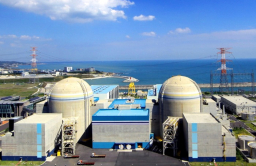-
KOSPI 2812.05 +41.21 +1.49%
-
KOSDAQ 756.23 +6.02 +0.80%
-
KOSPI200 376.54 +6.64 +1.80%
-
USD/KRW 1373 3.00 -0.22%
Korea signs definitive $19 bn Czech nuclear plant deal after twists and turns
Business & Politics
Korea signs definitive $19 bn Czech nuclear plant deal after twists and turns
Nuclear-related stocks surged as the KHNP-Czech deal is expected to create more business opportunities for smaller firms
By
Jun 05, 2025 (Gmt+09:00)
4
Min read
News+
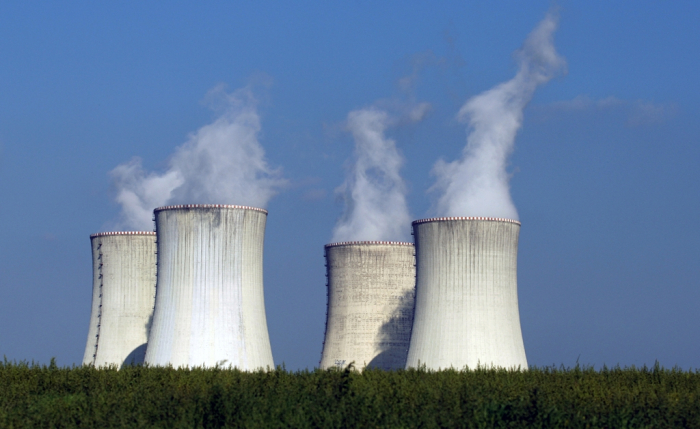
South Korea has secured its most significant nuclear export deal in over a decade, as a consortium led by Korea Hydro & Nuclear Power (KHNP) clinched a long-delayed 26 trillion won ($19 billion) contract to build two nuclear power reactors in the Czech Republic.
The agreement, signed on Wednesday, marks the culmination of a high-stakes international bidding process and reaffirms Korea’s re-entry into the global nuclear market after a 16-year hiatus since the Barakah nuclear power plant project in the United Arab Emirates in 2009.
The Czech agreement also signals a broader realignment of energy security priorities in Central and Eastern Europe, amid growing concerns over Russian gas and the need for energy diversification, analysts said.
Czech state-controlled company Elektrarna Dukovany II (EDU II) and KHNP, Korea’s state-run energy firm leading the “Team Korea” consortium, finalized the contract after the country’s Supreme Administrative Court last month overturned a lower court injunction that had stalled the deal.

The Brno Regional Court previously suspended the deal after France’s Électricité de France S.A. (EDF) – unsuccessful in the bidding process – filed a legal complaint.
Czech Prime Minister Petr Fiala announced the breakthrough during a nationally televised press conference on Wednesday, underscoring the strategic nature of the nuclear partnership.
Last year, Czech utility CEZ picked a KHNP-led Korean consortium to build two 1,000-megawatt units to expand its Dukovany nuclear plant in a 400 billion-crown ($19 billion) project, giving KHNP its first project in Europe. EDF and Westinghouse Electric Co. have since sought to overturn the decision on multiple fronts.
KHNP is leading the Korean consortium, which includes Doosan Enerbility Co., Daewoo Engineering & Construction Co. and KEPCO Engineering & Construction Co. (KEPCO E&C).

EDF CHALLENGES AWARD PROCESS
Originally slated for signing in early May, the contract was delayed after EDF challenged the award process, alleging irregularities and unfair competitive advantages stemming from Korean state support.
However, the Czech court's final ruling prioritized “the public interest inherent in the contract” over the procedural objections, citing domestic procurement law and case precedents, sources said.
The APR1000 reactor model to be built in the Czech Republic is a 1,000-megawatt-class design, representing a core pillar of Korea’s export-oriented nuclear strategy.
The Czech cabinet had indicated strong intent to proceed with the agreement despite legal entanglements, holding a full government meeting in May to pre-authorize the contract's execution pending legal clearance.

On the Korean side, senior officials, including Trade, Industry and Energy Minister Ahn Duk-geun and KHNP Chief Executive Whang Joo-ho, had traveled to Prague for the initial signing, only to return empty-handed due to the injunction.
“The legal preparations were complete,” said Minister Ahn after the initial delay. “We had full confirmation from the Czech government that there were no legal grounds preventing the agreement, and we were simply awaiting the court’s formal decision.”
LEGAL UNCERTAINTIES REMAIN
Although the primary contract has now been signed, legal uncertainties remain.
EDF’s main lawsuit challenging the legitimacy of the award is set to begin its first hearing later this month.
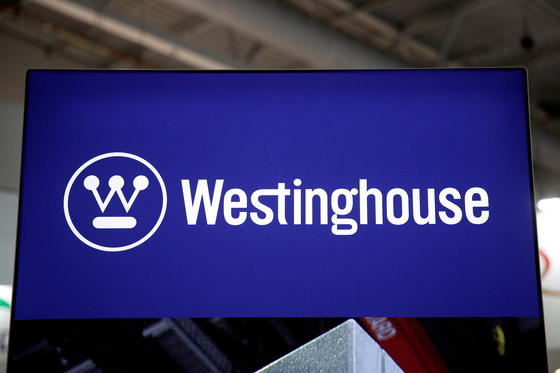
Legal experts warn that Czech court proceedings typically take one to two years, and a worst-case ruling could theoretically annul the contract post-commencement.
A Korean government official, however, downplayed that risk, saying, “The Czech side has demonstrated its intention to proceed. With the contract signed and (EDF's) legal standing weakened, EDF’s motivation to pursue the case further is limited.”
EDF has also appealed to the European Commission, arguing that KHNP’s bid may violate the EU’s foreign subsidy regulations. These rules aim to prevent non-EU firms from winning public tenders with the help of non-transparent state aid. The EC is reportedly considering whether to initiate a formal investigation.
Beyond geopolitics, the deal is expected to provide much-needed stimulus to Korea’s domestic nuclear supply chain.
About 300 Korean nuclear component manufacturers are expected to benefit from export opportunities related to the Dukovany project.

According to the Korea Atomic Industrial Forum, nuclear exports by small- and medium-sized enterprises surged to $132 million in 2022–2023, a 30-fold increase over the 2019–2021 period, which was marked by a national nuclear phaseout policy.
SHARES RISE
Shares in Korean nuclear energy companies surged on Thursday morning after the announcement of the deal.
Doosan Enerbility rose as much as 9.5% to 46,700 won, outperforming the benchmark Kospi index’s 2% rise.
Woojin Ntec Inc. hit an intraday high of 7% to 9,670 won, while Korea Electric Power Industrial Development Co. rose 13.5% to 12,940 won. KEPCO E&C advanced 16% to 70,800 won.
Write to Ri-Ahn Kim and Dae-Hun Kim at knra@hankyung.com
In-Soo Nam edited this article.
More To Read
-
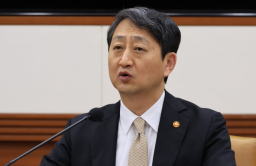 Business & PoliticsS.Korea confident of winning Czech nuclear plant deal despite court ruling
Business & PoliticsS.Korea confident of winning Czech nuclear plant deal despite court rulingMay 07, 2025 (Gmt+09:00)
-
Apr 25, 2025 (Gmt+09:00)
-
Jan 17, 2025 (Gmt+09:00)
-
 Construction & PlanningHyundai E&C signs engineering deal for two nuclear reactors in Bulgaria
Construction & PlanningHyundai E&C signs engineering deal for two nuclear reactors in BulgariaNov 05, 2024 (Gmt+09:00)
-
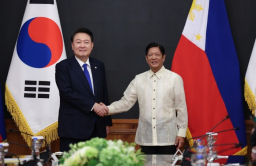 Business & PoliticsS.Korea signs MOU on Philippine nuclear safety checks, eyes plant deals
Business & PoliticsS.Korea signs MOU on Philippine nuclear safety checks, eyes plant dealsOct 07, 2024 (Gmt+09:00)
-
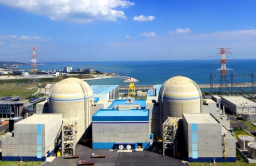 Business & PoliticsSouth Korea scraps anti-nuclear policy with approval of two nuclear plants
Business & PoliticsSouth Korea scraps anti-nuclear policy with approval of two nuclear plantsSep 13, 2024 (Gmt+09:00)
-
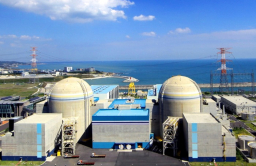 Business & PoliticsSouth Korea to build 3 nuclear plants, 1 SMR under new energy policy
Business & PoliticsSouth Korea to build 3 nuclear plants, 1 SMR under new energy policyMay 31, 2024 (Gmt+09:00)



